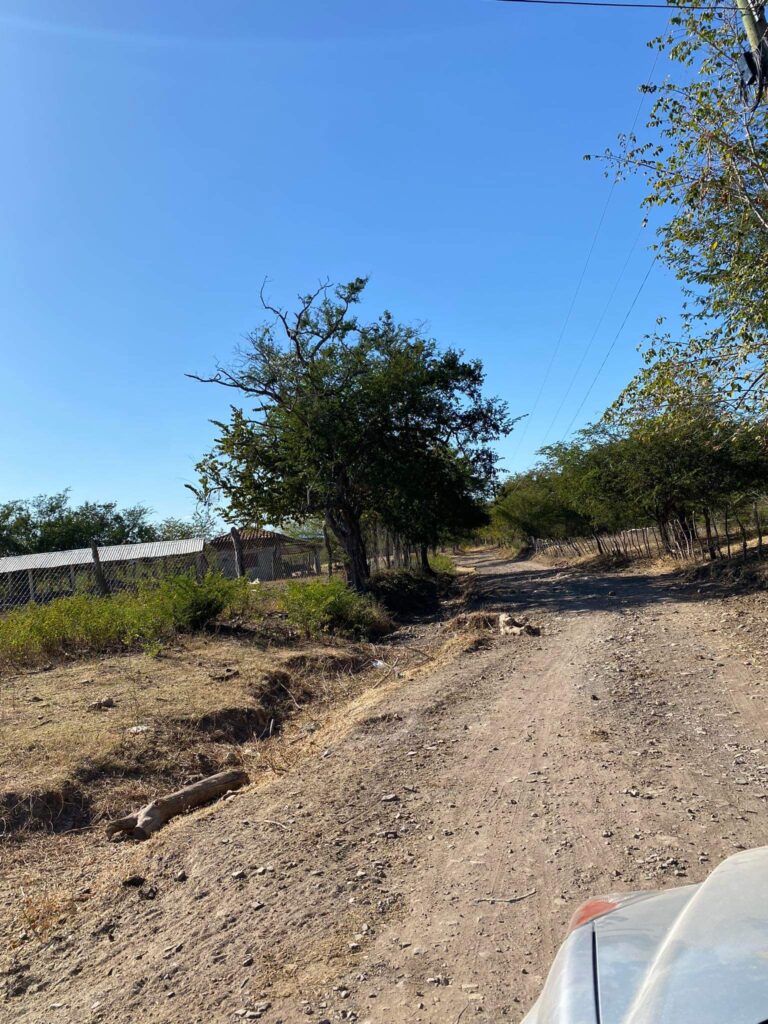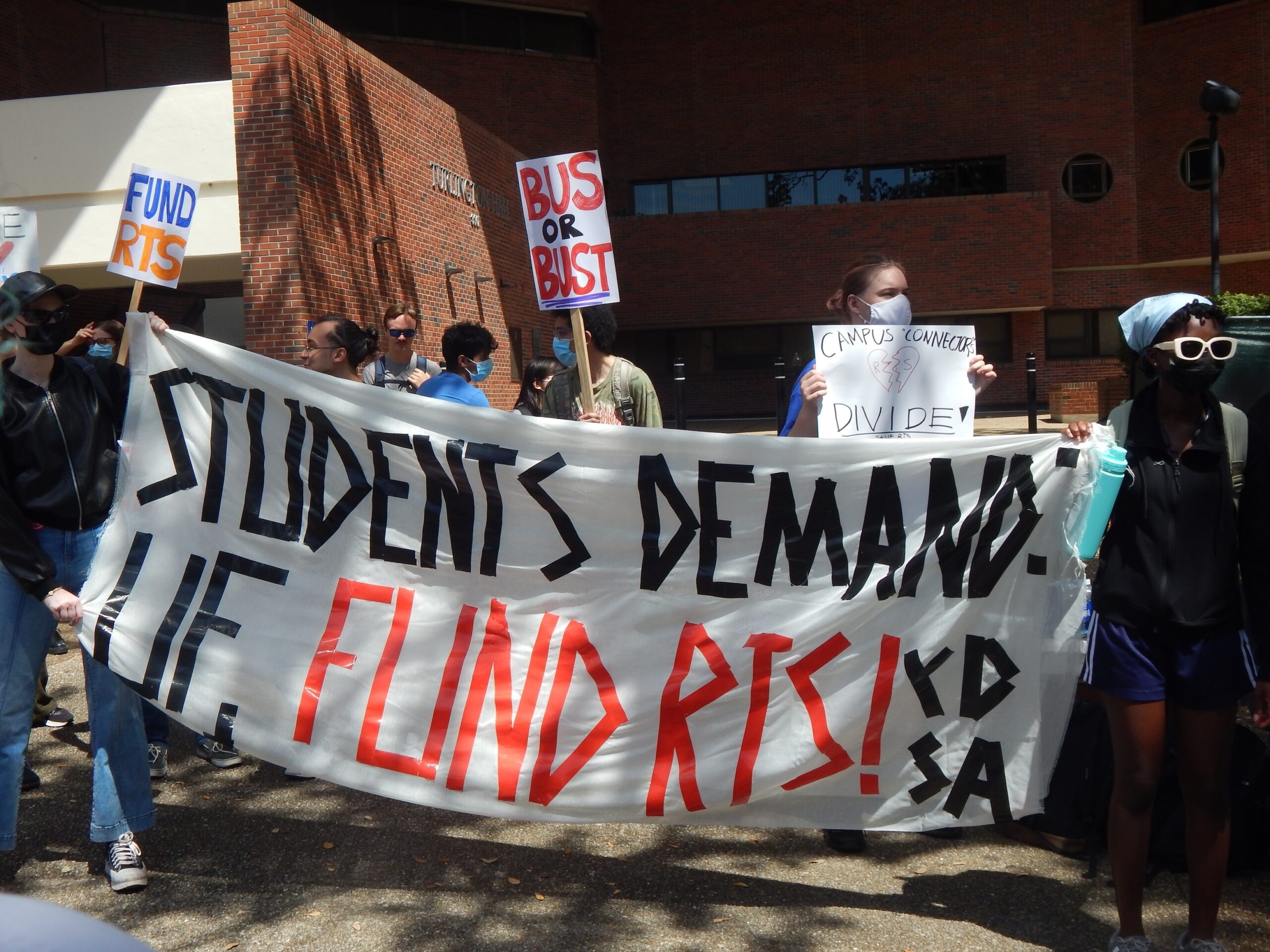( LA PEÑA #2, Honduras) —On a recent sunny noon, a car lies stalled in the middle of a three-mile dirt road in the small village of La Peña #2, Valle department in southern Honduras.
A tall, white-skinned man steps out of the driver’s door, looks at the front of his truck, and nods in frustration. “The wheel is stuck in a pothole,” says Alex Fuentes while a group gathers to help him. The poor road infrastructure in the southern part of Honduras is a risky adventure that many car and motorcycle drivers must navigate daily. ”
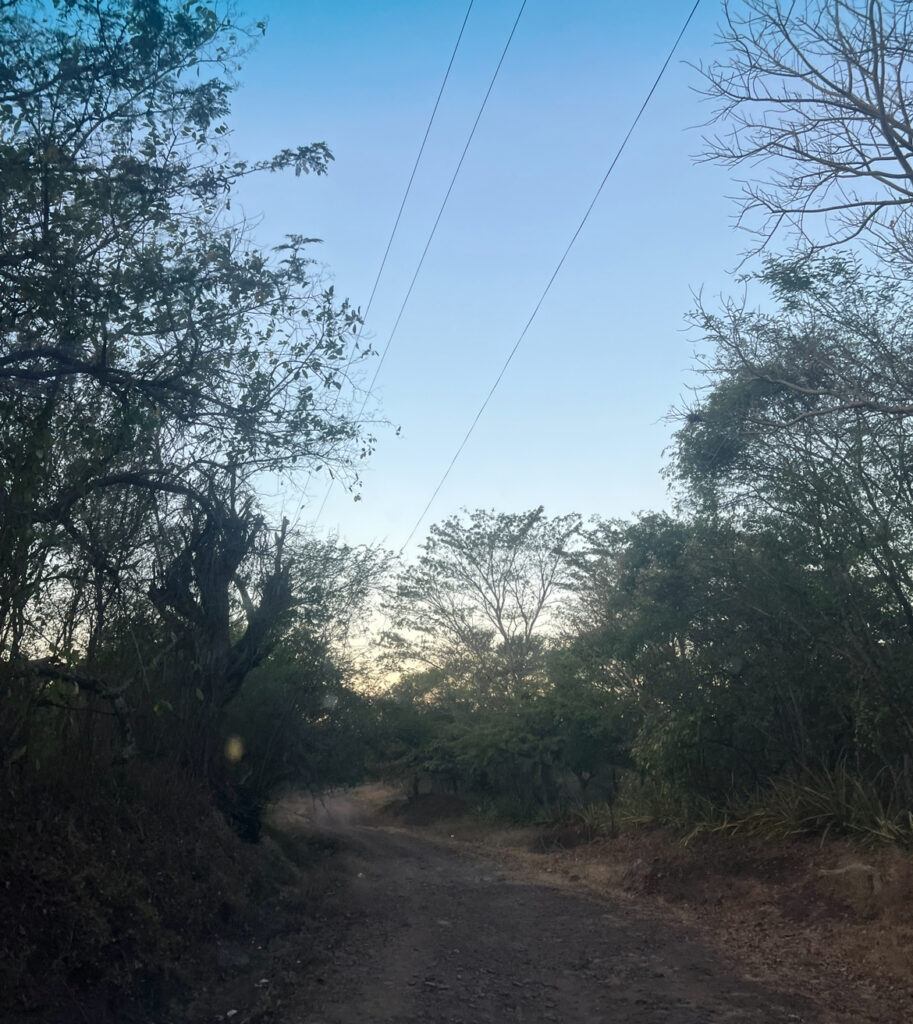
The three-mile road running through the rural villages has not been maintained in the last eight years. [Credit: Cristiano Vasquez]
I seldom drive my car, every time I drive it, it comes back with scratches and is hit by rocks,” says Irvis Fuentes, a resident of La Peña #2. Due to the faulty road, the cars have to drive at a minimum of 5 miles per hour, and commercial activities refuse to make deliveries in the area due to the dangerous conditions of the street. A mother of four who uses the road to transport her groceries has been waiting for months for a repair service to her refrigerator because the retail company says they cannot risk the safety of their employees and send their cars to the area due to the poor conditions of the road. People who have suffered from serious medical conditions have died on the road while they are being rushed to the nearby hospital since the cars have to drive at extremely slow speeds, even in life-or-death circumstances.
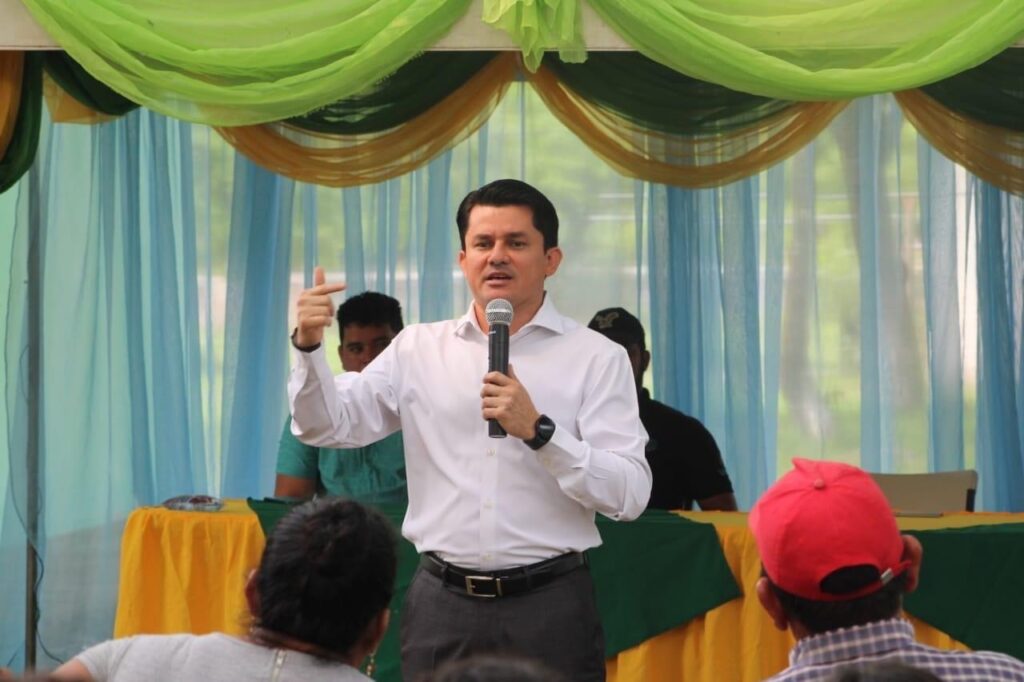
Fabricio Sandoval has been serving in office for six years; in 2021, he won the reelection with 15,818 votes in his favor. [Credit: Cristiano Vasquez]
According to documents published by the White House in 2021, the Biden-Harris administration launched the program Call to Action and the Partnership for Central America (PCA) to provide economic relief to developing countries such as Honduras, Guatemala, and El Salvador. One of PCA’s biggest interests is repairing damaged road infrastructure like the one in La Peña #2 village. White House papers say that from 2021 to 2024, a total of $5.2 billion has been distributed between Honduras, El Salvador, and Guatemala. The office of Octavio Pineda, the minister of the Secretary of Infrastructure and Transportation (SIT), said that in the last three years, a lot of money has been invested in repairing roads in the Valle department. Yet, he admitted having no knowledge why delegate Sandoval, also known as “Pepsi,” has neglected small communities such as La Peña #2, El Bonito, and Santa Rita. Sandoval said that the financial assistance provided by the Secretary of Infrastructure and Transportation has been invested in the repair of urban roads as the greatest vehicular and commercial traffic congregates in urban areas.
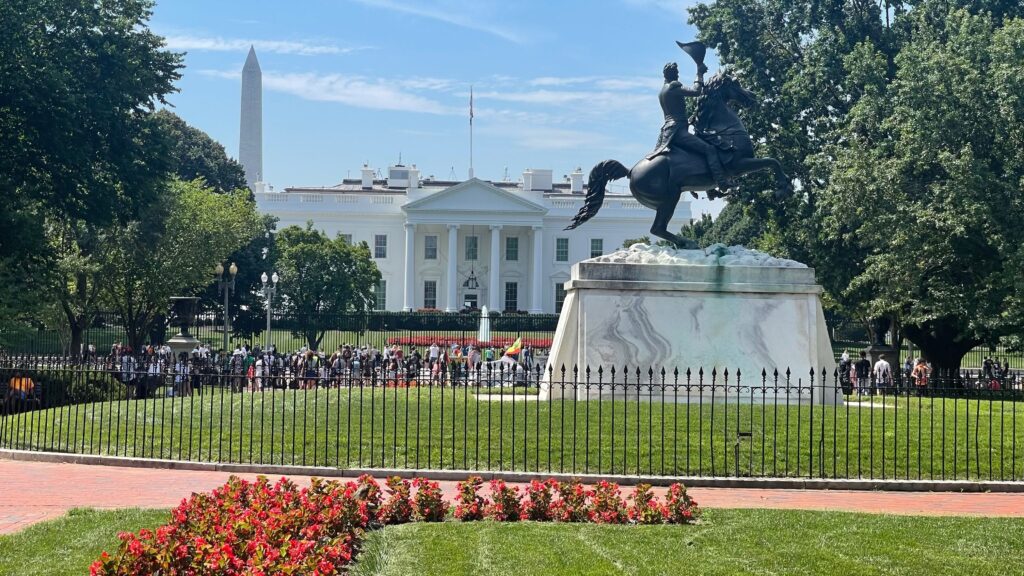
The White House said that in the last three years, the Biden-Harris administration has endorsed $5.2 billion to repair the infrastructure in developing countries in Central America. [Credit: Cristiano Vasquez]



